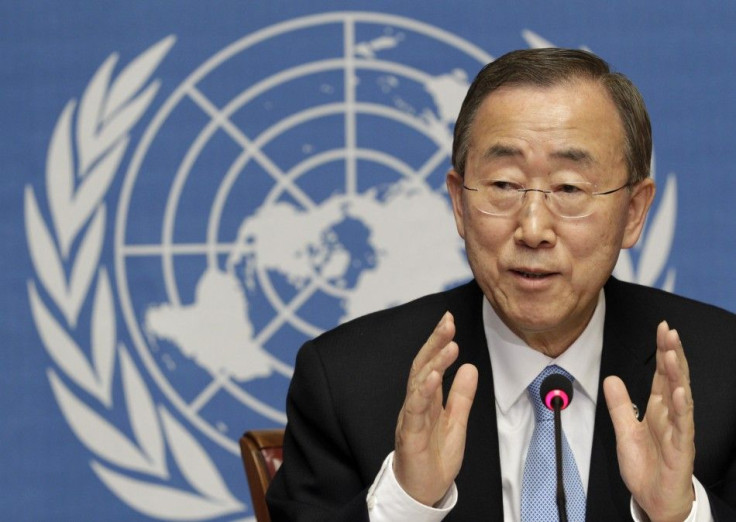Ban ki-Moon wins second turn as Secretary General

The United Nations general assembly has unanimously approved South Korean Ban Ki-moon's second term as Secretary General.
All 192 member states elected Ki-moon, who ran unopposed, through applause rather than an official vote.
Assembly President Joseph Deiss presented Ban after the vote, saying In a complex, difficult international environment, you have strengthened the role and the visibility of the United Nations by adopting reform measures, launching exciting, innovative initiatives, and calling faithfully and constantly for respect for human rights, the rule of law and the other values rooted in our charter.''
Ban's second run as Secretary General will begin January 1, 2012. He succeeded Kofi Annan in 2007, and is the organization's eighth Secretary General. As required, Ban was first approved by the Security Council, whose member countries are allowed to veto nominations, before being voted on by the General Assembly.
I will work as a harmonizer and bridge builder, Ban said after taking the oath of office. We must deliver results. Mere statistics will not do. We need results that people can see and touch, results that changes lives, make a difference.
Clearly we have far to go, Ban said. Too many people lack basic human rights. Too many people are hungry. Too many children die needlessly every day... Seldom has the United Nations been more relevant and never has it been more necessary.
In his first term, Ban made climate change a key issue. He has called it the most important priority in the world, and will continue to make it one of his topmost issues. Ban has, however, been criticized in the past for the slow pace of his climate change initiatives.
Ban has also come under fire for not doing enough to counter human rights abuses in China. But his handling of the Arab Spring protests has brought him deserved praise.
Although we've criticized Ban for his handling of human rights issues in the past, especially in places like Burma, China, and Sri Lanka, we've recognized a positive change in his approach over recent months, Philippe Bolopion of Human Rights Watch said in a statement.
He's had a much stronger public voice in Ivory Coast, Egypt, Libya, and Syria. We hope that, without the question of a second term looming over his head, Ban will do more to further the human rights of people around the world over the next five years.
© Copyright IBTimes 2025. All rights reserved.





















